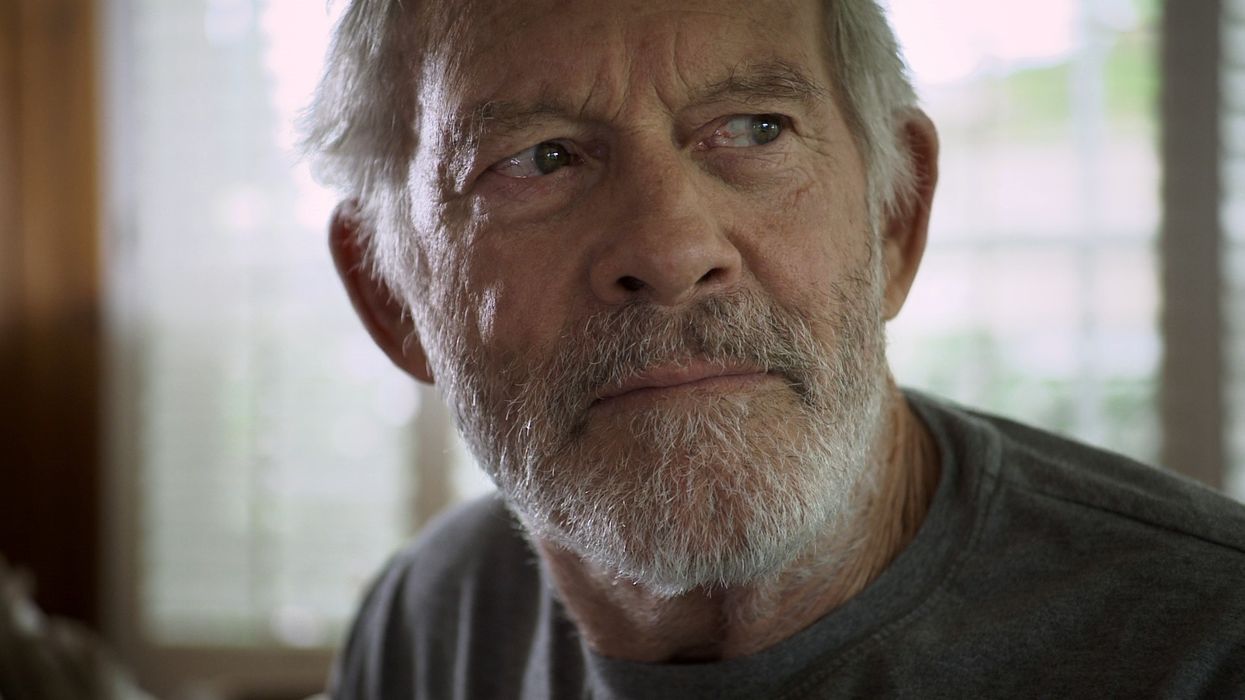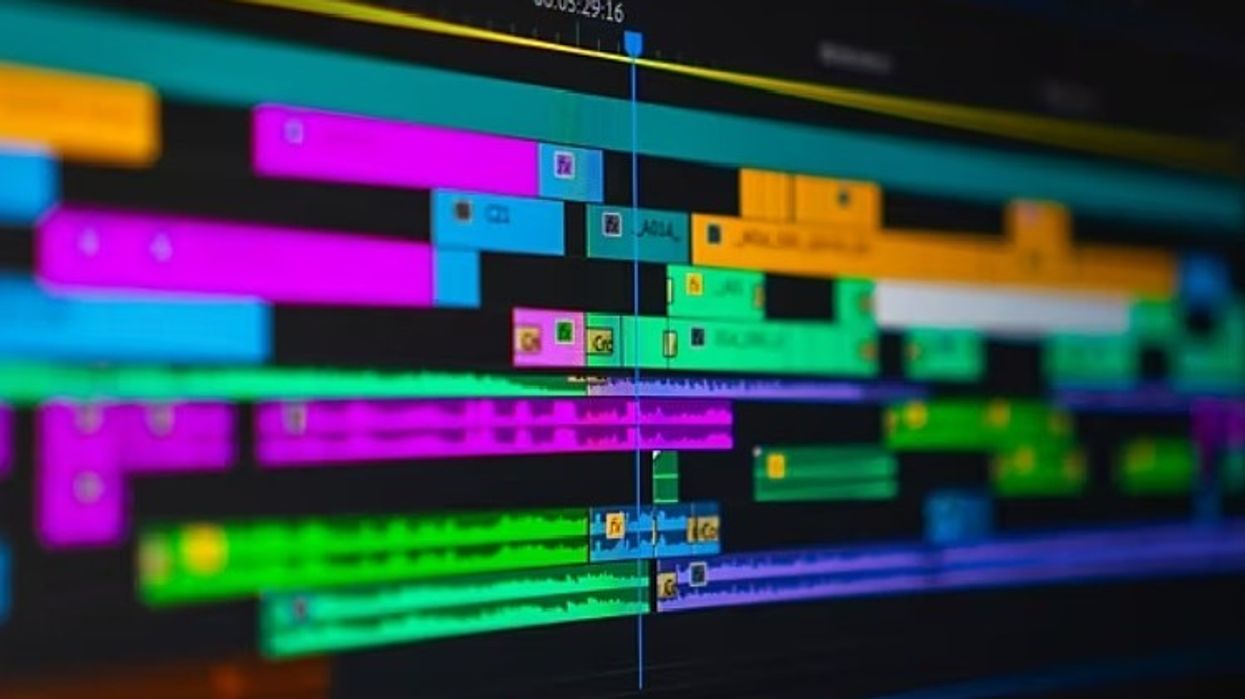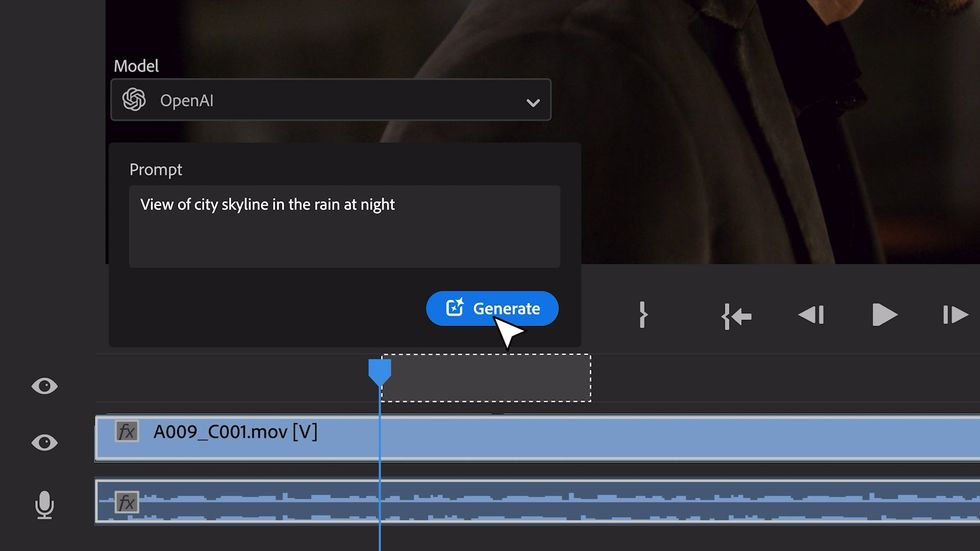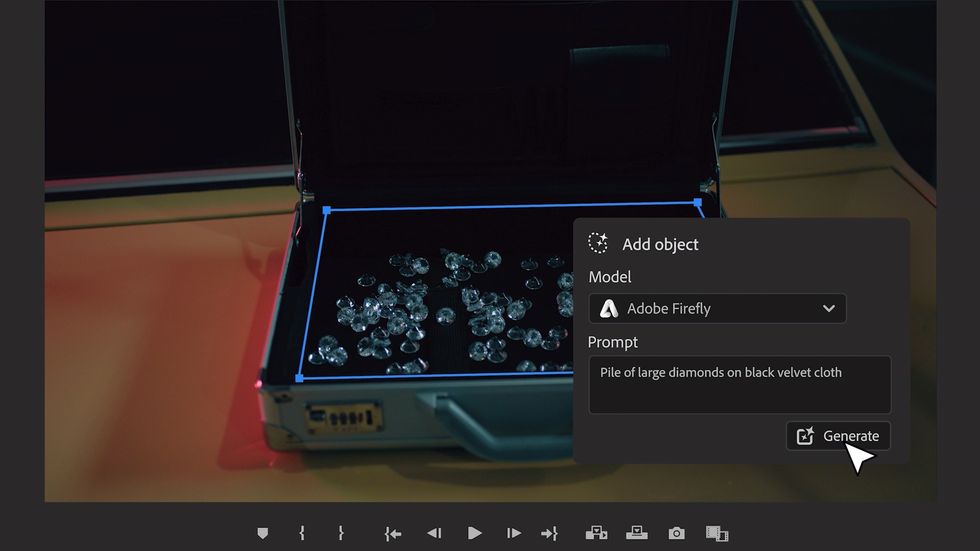Want To Be A Better Director? Try Being An Actor, DP, or Set Painter Says Director of 'The Frontier'

What defines an independent film with great performances from another with cringe-worthy delivery? The directing? The dialogue? Maybe if you could just afford to hire famous actors?
In his first feature film, director Matt Rabinowitz is out to show that you can take a group of relative newcomers and come out with a good film. How? In this case, much of the strength of The Frontier, a meditative portrait of a rocky father-son relationship, is in that intangible element of a film's success: the acting. Rabinowitz, who has been a cinematographer, a documentary filmmaker, and actor under directors such as Jonathan Demme, sat down with No Film School and his three principal cast members to talk about how he got performances on the set of The Frontier, which opens in theaters in NY and LA next week.
The three main characters in The Frontier are played by relatively (or completely) unknown actors Coleman Kelly (Tennessee), Anastassia Sendyk (Nina), and Max Gail (Sean). For Kelly and Sendyk, these were their first on-screen roles. Max Gail, on the other hand, is no stranger to show business having been a popular supporting TV actor in the 1970s. How did Rabinowitz direct such an unlikely group of people into performances that were "painfully awkward, rank with tension, and so real"? Take a look at the trailer for The Frontier, and read our interview to find out more about:
NFS: Matt, before directing your first film, you've been an actor, you've made documentaries, you've been a cinematographer. Did going through those disciplines help you on your first feature as director?
Matt Rabinowitz: I would absolutely recommend it. I think as many jobs as you can take in film no matter what you want to do, in film, go for it. Understanding all the positions really helps you to communicate with the people in those positions. And I still do all of those! I've also been a set painter; I've been a PA. I've always loved film. Since I was probably 10-years-old (after wanting to be an astronaut), I've always wanted to be a filmmaker. It's kind of the only job I've ever wanted and ever worked towards. So it was always pretty obvious, to me at least, that this is what I would be doing. In terms of this being my first film, we hit on this idea and just decided to go with it. And a lot of the themes from the film about fear and overcoming that and just doing something came from our thoughts on making the film. Just like, "Hey, let's just do it. Let's make a movie! Let's see if we can do this." And we did!
There's a movie now. And all the other jobs really helped inform directing a feature film. Because this is also the first time that I've worked with an actual professional crew that wasn't just me and a camera, holding a microphone with one hand, you know? So it was super helpful. Just knowing what their jobs entail, and how hard everyone's job is, because everyone does just a difficult job and they do it with everything they have. And it's important to understand even the craft services people are trying their best. It's really important to understand that and to know it. And to just to know their terminology, even.
NFS: Your cast is sitting here with us. Max Gail, you play the main character Sean in The Frontier. You were famous for your role on Barney Miller in the late 1970s, but you hadn't had a leading role for a very long time — maybe 30 years?
Max Gail: This is my first lead ever!
NFS: So Matt, how did you rediscover Max?
Rabinowitz: I've known Max for 90 percent of my life! I went to kindergarten with his daughter! And Max would drive our carpool. So I've always been aware of Max. And I was a huge fan of him even back then, watching Barney Miller reruns. He'd guest star on shows that I'd watch, he was in an episode of Home Improvement that I made sure to stay home and record! So when I knew that I wanted to have Max in the movie — I don't know that there was a specific point — but once the idea entered it my mind, it could not leave. Once the seed of the thought germinated it was him or nobody. He did such a great job and was so nice to read our script and want to do it. I feel so happy that this is his first lead role. I wish he'd had thousand of lead roles, but I'm so proud and honored that this is his first.
Gail: We were all first timers.
Rabinowitz: We were all first timers! In one way or another we were all doing this for the first time. That was really encouraging. Almost everybody except for the gaffers and grips.
NFS: You don't necessarily want a first-time gaffer —
Rabinowitz: There was a two-person gaff team, and they'd never been part of a crew so small — that was a first for them. And they did such an incredible job with the amount of work they had to do. So we were all in it together. It was such a strong family feel. Actually, a lot of people from my family were crew members, so that really helped. We were like a crazy, motley pirate gang. All in this together! Bucking the system on a super low budget movie.
NFS: How does working with someone who is almost like a family member affect your directing dynamic? Does it help or make it more complex?
Rabinowitz: I think it helped. Max is so open. One of my big projects going in was just being open to everything. I'm not someone who had a giant ego; I just wanted to make a great movie. If it's someone else's idea, as opposed to mine, that's fine. Max had a lot of really great ideas. We had a dialogue throughout the entire making of the film and it was so helpful and I don't know that we would have had that had we not known each other so well. We could just talk about things and not worry about, "Oh, am I offending him?" So it was really nice. It was so helpful for me as a first time director that he was so willing to participate in such a strong way.

Gail: From the first time I knew Matt, and there's been a long time that we hadn't interacted, I knew there was always a person there. I can see now, back when you were four or five, there was a person there who would say hello and be looking around and taking things in. So that was a wonderful thing to have. And I think with Coleman and Anastassia, one of the wonderful things is that they come from a way of working from my same roots. They really brought a certain approach to acting that often gets lost in the process of actually making a movie or a TV show or something. It's not always understood by other people. You do have to be able to plug in the lights or they won't come on; there's also a way you have to be connected in acting. Their commitment to that was great. And the first time dealing with the camera around -- three or four days all of a sudden, they had it. At first it was like —
Coleman Kelly: It was like, "What the — "
Rabinowitz: "Say the line toward to camera please!"
Gail: Or, "Don't stand in front of the camera!"
Kelly: That was the first thing that threw me off. You have to say the line right here. "You mean at the camera? There's no one there!"
Rabinowitz: "Two degrees over from the camera!"

NFS: We're always interested in micro budgets at No Film School. You shot over 18 days, right? If I had backed your Kickstarter I guess I could have probably been able to see your set?
Rabinowitz: Yeah, we live streamed the whole thing! Part of the thing with our Kickstarter is that we live streamed the whole thing. If you donated five bucks or more, you could have access to this special site where we live streamed the whole process.
NFS: How did you guys feel about that?
Gail: A little reticent at first!
Anastassia Sendyk: Like anything else, it was there, and the first few days it was kind of like, oh my god. I hate this. And then you get used to it.
Kelly: It was just like someone was holding an iPad and would walk around. You'd be talking and all of the sudden — if we were really in the middle of something or focusing, there was a scene that was too personal, Matt would —
Rabinowitz: — I was the bad guy, I was the one denying access.
Gail: There is a need for actors to have a place to go to be actors while everybody was doing something.
Rabinowitz: The other thing is that we shot the whole movie in a 3-bedroom house. That's 20 crew members, three actors, and everything's being live streamed! It was incredibly frustrating and annoying at first! But after a certain point you just get so engrossed in the actual making of the film that you don't remember it's there. It was really interesting hearing people's feedback in real time. And a lot of people, mostly parents of crew and stuff, would watch the live stream and give us comments.
NFS: Really? Like, "This is boring — "
Rabinowitz: Exactly! A lot of them had no idea how films were actually made, or had ever seen a film set. In real time. And a lot of people were like, "Is this normal?" We'd be like, "We're working so fast! We're working so much faster than any other film!" You know like, a big budget movie, you maybe do 10-15 setups a day if you're really lucky. We were doing like — some days we were doing 35 setups! We were flying. We ended up two days ahead of schedule just because we were going so fast. And it was still, for non-film industry people watching the live stream, soooo boring.

NFS: What did you shoot on?
Rabinowitz: We shot on a Sony F3 that was really graciously donated by Ben Johnson of Upstream Media, who does a lot of video work and has worked with Neil Young since the 1960s. He was nice enough to let us borrow it for a month. Without that, I don’t know if we could have afforded a good camera!
NFS: So you had a good experience, you’d shoot on the Sony F3 again?
Rabinowitz: Absolutely! It doesn’t look like film, but in terms of digital photography, it’s about as good as you can do for the price.
NFS: Matt, what would be your overall advice having just finished your first feature?
Rabinowitz: Just do it. If you have an idea, do it. You’re not going to be Stanley Kubrick right out the gate. Stanley Kubrick wasn’t Stanley Kubrick right out the gate. We live in a society now where media happens so fast that if you do make a film and it’s terrible, it will be forgotten tomorrow. So you can make another one!
---
Thank you, Matt!
If you live in New York or Los Angeles, you can catch The Frontier on the big screen starting next week. If you'd like to catch it somewhere else, stay tuned to The Frontier site for more screenings and eventual VOD release. Here are the big screen slots so far:
- NEW YORK: Friday, September 12 thru September 18 -- Quad Cinema
- LOS ANGELES: Friday, September 19 thru September 25 -- Laemmle NoHo 7
Have you worked with actors that were new to acting, or who are your friends or family? Did it help or hinder you as a director?
Source: The Frontier website














